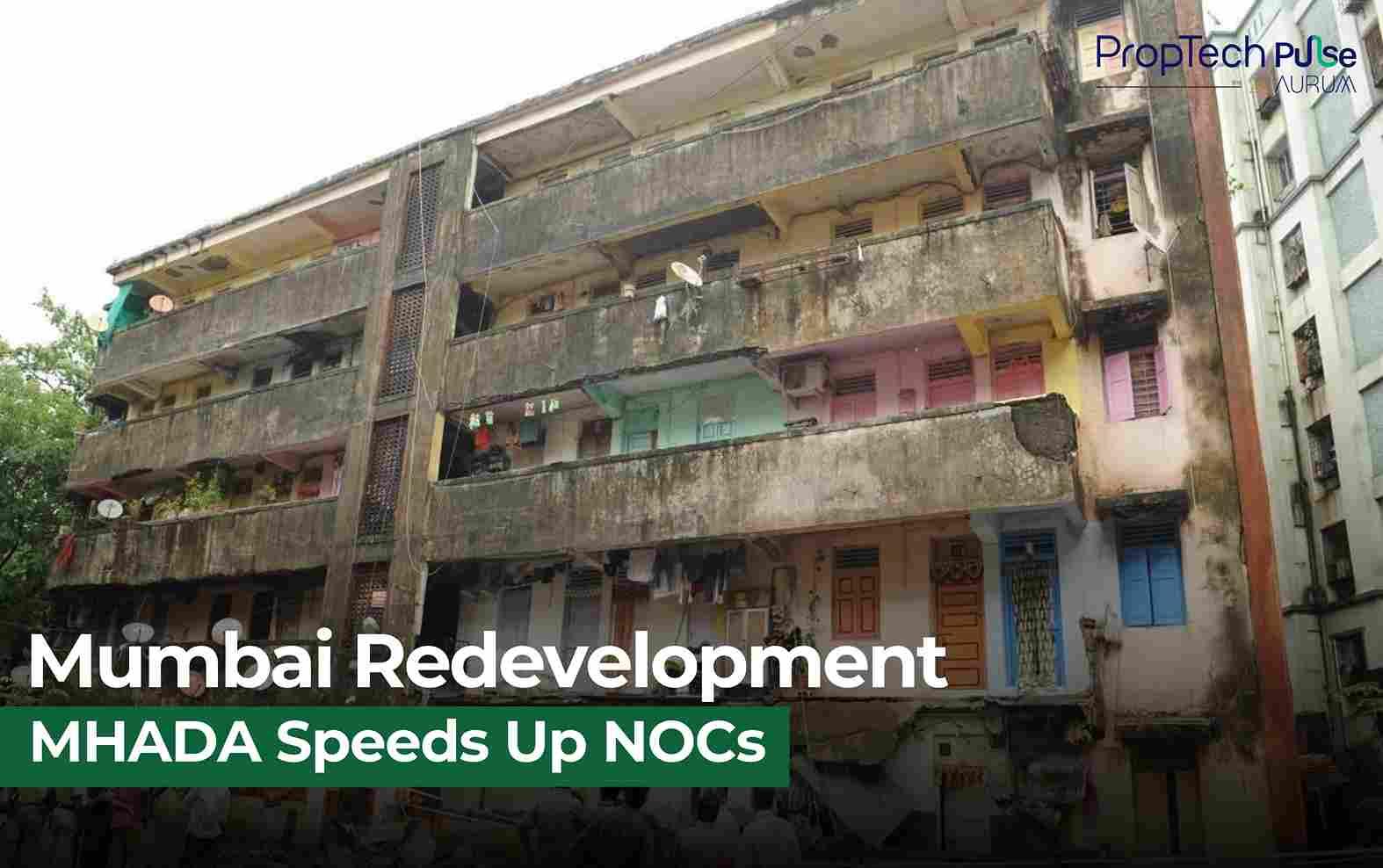
A Historic Shift in Mumbai’s Redevelopment Landscape
Mumbai, a city defined by its vibrant history and iconic architecture, is witnessing a transformative wave in the redevelopment of its aging cessed buildings. The Maharashtra Housing and Area Development Authority (MHADA) has introduced a groundbreaking policy to expedite redevelopment approvals. Now, redevelopment proposals for old cessed buildings submitted under Section 79A(1a) or 79A(1b), with at least 51% resident consent, will receive a No Objection Certificate (NOC) within six weeks. This process is governed by the Right to Service Act, ensuring that if approvals are delayed, the NOC will be deemed approved, effectively eliminating bureaucratic bottlenecks that have long hindered Mumbai’s urban renewal.
This policy change signals a new era of accountability and efficiency, promising faster redevelopment for thousands of dilapidated buildings that have long been a challenge for the city.
MHADA’s Vision: Building 8 Lakh Affordable Homes in Five Years
At the 2nd Redevelopment Conference and Investors’ Summit, MHADA’s Vice President and CEO Sanjeev Jaiswal outlined an ambitious vision. The goal is to construct 8 lakh affordable homes across the Mumbai Metropolitan Region (MMR) within the next five years. This mammoth task will be supported by MHADA’s investment of ₹6,609 crore, complemented by an expected ₹1.28 lakh crore from private developers.
Priority redevelopment projects have been identified in key areas such as GTB Nagar, Abhyudaya Nagar, Motilal Nagar, and the historic BDD Chawls. These neighborhoods, long known for their aging infrastructure, are set to be revitalized, offering residents safer, modern, and more livable environments.
Structural Audits: Ensuring Safety and Timely Redevelopment
Safety is at the forefront of MHADA’s redevelopment strategy. A comprehensive structural audit campaign has been launched, targeting 1,000 cessed buildings by March 2025 as part of the Maharashtra government’s 100-day action plan. These audits will assess the condition of buildings, many of which were constructed before 1969 and are in urgent need of repair or reconstruction.
MHADA plans to extend these audits to all 13,000 identified cessed buildings over the next year. This initiative is critical to prevent mishaps and ensure that redevelopment proceeds on a foundation of safety and technical viability.
Understanding Cessed Buildings and Their Categories
Cessed buildings in Mumbai are rent-controlled properties built primarily before 1969, which pay a nominal tax (cess) to MHADA for maintenance and repairs. These buildings are categorized based on their construction period:
- Category A: Buildings constructed before 1940
- Category B: Buildings constructed between 1940 and 1950
- Category C: Buildings constructed between 1951 and 1969
The condition and redevelopment incentives vary by category, with additional incentives for buildings declared dangerous or those redeveloped as part of composite projects involving multiple plots.
Incentives and Policy Reforms to Boost Redevelopment
MHADA has introduced several reforms to make redevelopment financially viable and attractive:
- Floor Space Index (FSI) Incentives:
- For ‘A’ category buildings, permissible FSI is 2.5 or rehabilitation FSI plus 50% incentive, whichever is higher.
- For ‘B’ category buildings, rehabilitation FSI plus 50% incentive applies.
- Composite redevelopment of multiple plots can earn additional incentives, up to 70% for six or more plots.
- Transferable Development Rights (TDR): Where height or safety regulations limit FSI utilization on the same plot, developers can transfer unused development rights to suburbs, ensuring project feasibility.
- Financial Relief Measures: These include a 13% reduction in interest rates, installment-based premium payments, and GST relaxation on rehabilitation components.
- Transit Accommodation: Surplus tenements can be used for transit housing without prior offers to the BMC or MMRDA, facilitating smoother relocation during redevelopment.
- Premium Calculation: Premiums on clubbed redevelopment schemes will be based on the smaller plot area, reducing financial burdens on developers.
Rental Housing and Inclusive Development
MHADA is also positioning itself as the nodal agency for affordable rental housing. New initiatives include:
- A Rental Housing Index to guide policy and investment
- 100% income tax exemption on rental income for ten years to incentivize landlords
- Utilization of unused MHADA land for rental housing projects
- Inclusive housing provisions with fixed tenement costs at 125% of the District Schedule of Rates (DSR)
- Land management protocols to prevent subdivision of plots smaller than 4,000 sq.m, ensuring better planning and infrastructure
The MMR Growth Hub: A Blueprint for Sustainable Urban Growth
The MMR Growth Hub initiative aims to develop 7.82 lakh housing units, adopting a model where 60% of units are sold and 40% are allocated for free rehabilitation. The average cost per unit is estimated at ₹50 lakh. This initiative will not only address Mumbai’s housing shortage but also create vibrant, sustainable communities with improved infrastructure and amenities.
MHADA’s Ongoing Commitment and Future Outlook
With over 13,000 cessed buildings identified for redevelopment, MHADA’s fast-tracked NOC policy and comprehensive reforms are setting the stage for a new chapter in Mumbai’s urban development. The combination of accelerated approvals, financial incentives, and a focus on safety and inclusivity promises to transform the city’s real estate landscape.
As MHADA continues its structural audits and redevelopment drives, Mumbai’s residents can look forward to safer homes, better living conditions, and a city that honors its heritage while embracing the future.
Unlock the Latest in Real Estate
News, Infographics, Blogs & More! Delivered to your inbox.
“Data that drives action. Insight that inspires action. Technology that empowers action.“
“Data that drives action.
Insight that inspires action.
Technology that empowers action.“









